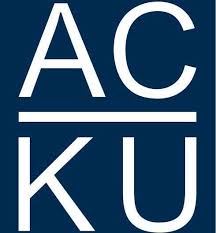Women and political leadership : the problems facing women leaders in Afghanistan / Nasrat Esmaty, Asadullah Ahamdi ; researchers and field workers Nasrat Esmaty, Asadullah Ahmadi and Rohullah Obaidy ; report authors Nasrat Esmaty and Asadullah Ahmadi ; project director and principal analyzer Jamila Omar ; final reviewer Rebecca Wright.
Material type: TextLanguage: English Publication details: [Kabul] : Human Rights Research and Advocacy Consortium (HRRAC), 2010.Description: iii, 42 p. : col. ill. ; 27 cmSubject(s): LOC classification:
TextLanguage: English Publication details: [Kabul] : Human Rights Research and Advocacy Consortium (HRRAC), 2010.Description: iii, 42 p. : col. ill. ; 27 cmSubject(s): LOC classification: - Pamphlet HQ1236.5. A34.
| Item type | Current library | Call number | Status | Date due | Barcode | Item holds | |
|---|---|---|---|---|---|---|---|
 Monograph
Monograph
|
Afghanistan Centre at Kabul University | Pamphlet HQ1236.5.A34.E863 2010 (Browse shelf(Opens below)) | Available | 3ACKU000357920 |
“September 2010”.
“Includes bibliography”—(p. 38-42).
Contents: Acknowledgements—organizational summary—Acronyms—Glossary—Executive summary—Key findings—Recommendations—To the government of Afghanistan (GoA)—To the international institutions—Methodology and respondent profiles—Chapter I : introduction (p. 6)—Chapter II : women’s leadership in Afghanistan : laws, policies, elections and appointments (p. 9)—Chapter III : “the space for women in Public life is shrinking” : the empty symbolism of Afghanistan’s gender-equality laws and policies (p. 14)—Chapter IV : women’s leadership in Afghanistan and the politicized Islam (p. 22)—Chapter V : failure to adopt broad socio-political reform : the need for education and economic opportunities as a foundation for real women’s leadership (p. 32)—Conclusion—Bibliography.
Summary: “This report examines some of the main factors that are hindering Afghan women’s participation in decision-making, political and policy-making processes. It focuses on female figures who are active in political, social and cultural areas in Afghanistan. Overall, three main elements are identified as obstacles to women’s full political participation at a leadership level: 1) a lack of political will within the Karzai administration; 2) the influence and threat of politicized Islam; 3) the lack of a broad socio-political approach to promote women leaders”—(p. 1).
English
